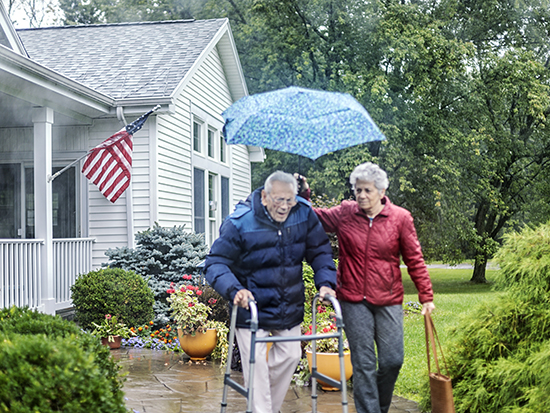 UAB’s Rachel Cowan, Ph.D., explains how to assist a disabled neighbor in the event of dangerous weather. During severe weather season, families make plans for what they need to do in the case of a severe weather threat. When making your plans, University of Alabama at Birmingham’s Rachel Cowan, Ph.D., wants to remind you to remember your neighbors with disabilities.
UAB’s Rachel Cowan, Ph.D., explains how to assist a disabled neighbor in the event of dangerous weather. During severe weather season, families make plans for what they need to do in the case of a severe weather threat. When making your plans, University of Alabama at Birmingham’s Rachel Cowan, Ph.D., wants to remind you to remember your neighbors with disabilities.
In the event of a tornado or rising flood waters, those with physical disabilities might need assistance to get to safety.
“When making your household’s plans for severe weather, survey those in proximity to you, and identify those who might need assistance or could be at risk during severe weather,” said Cowan, an assistant professor in the UAB Department of Physical Medicine and Rehabilitation.
Once you have identified those individuals, Cowan recommends approaching them and asking if they would need assistance if there is a weather threat.
“It is always important to ask the person if you can help them,” she said. “If they do say yes, then ask them how they would like you to help in various scenarios.”
Create a plan
The first, and most vital, step to weather preparedness is to create a plan with your neighbor. Cowan recommends locating the evacuation shelter closest to your residences and asking how you can assist them in getting to the designated shelter.
“If your neighbor is in a wheelchair, it is important to make sure that the closest shelter is wheelchair-accessible,” Cowan said.
Know where the closest storm shelter is to your home.
A battery-operated weather radio is recommended for every household, in case the power goes out and you can no longer access the news. A radio that includes flashing lights is a great resource for those who have impaired hearing.
When formulating your plan, Cowan recommends including:
- An agreement for how and when to check in on each other
- An emergency contact list
- A list of all medications in case medical assistance is needed
Cowan also suggests that, if a wheelchair is used, a demonstration of how to operate the chair be completed.
“A walk-through — before severe weather happens — of how to properly operate a wheelchair is best so that, when you are trying to hurriedly get to safety, you know how to best assist your neighbor, and you won’t have to spend time trying to learn in a moment when time could be of utmost importance.”
During the crisis
When bad weather is happening, make sure to follow the plan. If a neighbor asks to be notified of bad weather, it is important to do so with ample time.
“If your neighbor asked for assistance to get to their safe spot, or needs transportation to a shelter, make sure you do not wait too long to help them, so that you will have time to also get to your safe spot,” Cowan said.
 After the crisis
After the crisis
Once the severe weather has passed, and the all-clear as been given by proper authorities, it is important to follow up with the neighbor to make sure they are safe.
“If your neighbor has trouble controlling their body temperature, electricity may be essential for them,” Cowan said. “If there is a power outage, they may need assistance relocating to a nearby hotel or friend’s house where they can control their temperature better.”
Depending on the situation, follow-ups may be helpful to ensure that everyone is healthy and safe.
“The actions taken before, during and after a crisis, could save a life,” Cowan said. “Remember to check on your neighbors, and if you are willing, offer to help them during a severe weather crisis.”
